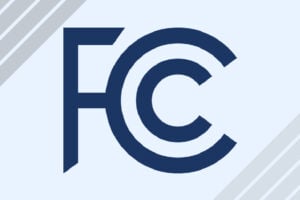 The FCC, citing comments from industry stakeholders, is seeking more information on gaps in call authentication requirements for some voice service providers.
The FCC, citing comments from industry stakeholders, is seeking more information on gaps in call authentication requirements for some voice service providers.
10/10/2022 9:15 A.M.
3.5 minute read
The Federal Communications Commission is seeking additional comment from industry stakeholders on call authentication processes after a push from ACA International and its coalition partners to ensure the standards will reflect concerns from callers and the impact they will have on callers.
Through a notice of inquiry, the FCC is looking for more focused input on caller ID authentication technology for non-IP networks and how best to address the remaining gap in the FCC’s caller ID authentication plans.
Non-IP networks essentially don’t have the tools to conduct the STIR/SHAKEN call authentication framework as required under the Telephone Robocall Abuse Criminal Enforcement and Deterrence (TRACED) Act passed to mitigate illegal and unwanted robocalls.
Caller ID authentication allows voice service providers to verify that the caller ID information transmitted with a particular call matches the caller’s real number, which in turn helps to determine whether the call should be blocked or labeled, according to the FCC.
Widespread deployment of caller ID authentication will reduce the effectiveness of illegal spoofed caller ID, allow law enforcement to identify bad actors more easily, and better enable phone companies to block illegal calls before those calls reach consumers, the FCC says.
What happens if a network used by a voice service provider can’t support caller ID authentication? The provider needs to switch networks or come up with a comparable technology that can be used on a non-IP network.
That’s at the center of this comment request.
In the request, the FCC cites initial comments from ACA International, the Credit Union National Association, American Financial Services Association, National Council of Higher Education Resources, National Association of Federally-Insured Credit Unions and the Student Loan Servicing Alliance (joint industry trade groups) on the proposal under Advanced Methods to Target and Eliminate Unlawful Robocalls and Call Authentication Trust Anchor Docket No. 17-59 that outlines the need for those two options and additional input from stakeholders.
In the comments, the groups urge the FCC to take further steps to curb illegal spoofing by requiring voice service providers using non-IP networks to authenticate caller ID using commercially available technology.
ACA and the joint industry trade groups have advocated for a requirement that providers who don’t have modern IP networks (and hence can’t conduct STIR/SHAKEN call authentication) should adopt a commercially available workaround so that they too can generate or pass along call authentication information. This closes a gap that now prevents authentication information from being sent and thus enables spoofing.
Call for Comments
Congress has directed the FCC to separately address caller ID authentication for non-IP networks. The TRACED Act required the commission to mandate that voice service providers take “reasonable measures” to implement an effective caller ID authentication framework in the non-IP portions of their networks, according to the FCC.
The FCC adopted rules implementing this statutory direction and, since those rules were adopted, industry technologists have made progress on standards for non-IP caller ID authentication
But some of the specifics need to be hashed out with industry input. The FCC seeks comments on:
- The prevalence of non-IP technology in the country’s phone networks generally and the impact this technology has on the problem of illegal robocalls.
- Two standards for caller ID authentication on non-IP networks developed by the Alliance for Telecommunications Industry Solutions (ATIS).
- Any alternative technological or policy solutions to enable caller ID authentication over non-IP networks.
- The nexus between non-IP caller ID authentication and the IP transition generally, and on specific steps the Commission can take to encourage the industry’s transition to IP.
The FCC will consider the notice of inquiry at its Oct. 8 open meeting.
After the meeting, interested parties may file comments by Dec. 12, 2022, and reply comments are due by Jan. 11, 2023. To submit comments on the notice of proposed rulemaking, visit the FCC’s Electronic Comment Filing System and file under CG 17-59. For more information on the proposed rulemaking, click here.
If you would like to share feedback with ACA on this comment request, contact our advocacy team at [email protected].
If you have executive leadership updates or other member news to share with ACA, contact our communications department at [email protected]. View our publications page for more information and our news submission guidelines here.
 The FCC, citing comments from industry stakeholders, is seeking more information on gaps in call authentication requirements for some voice service providers.
The FCC, citing comments from industry stakeholders, is seeking more information on gaps in call authentication requirements for some voice service providers.













